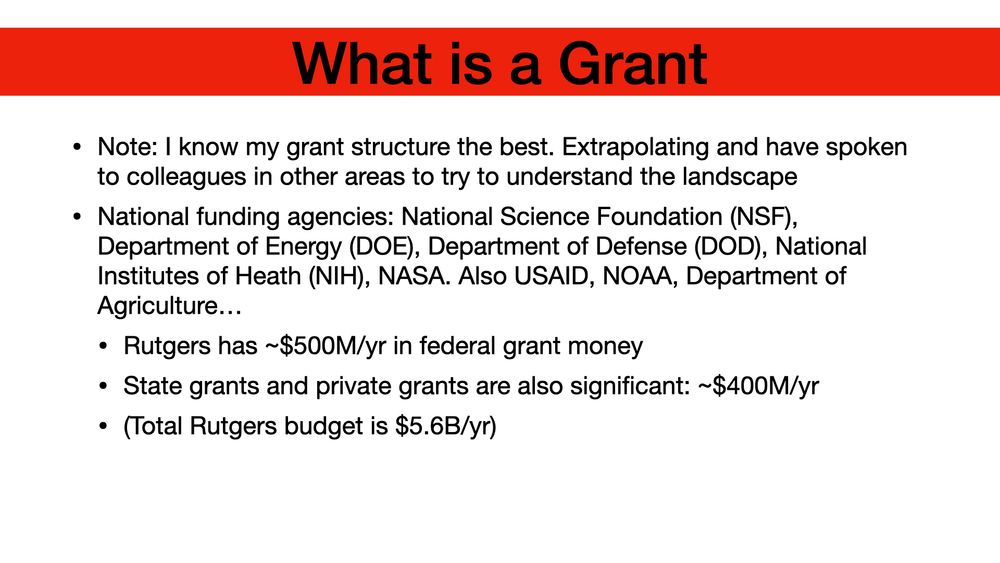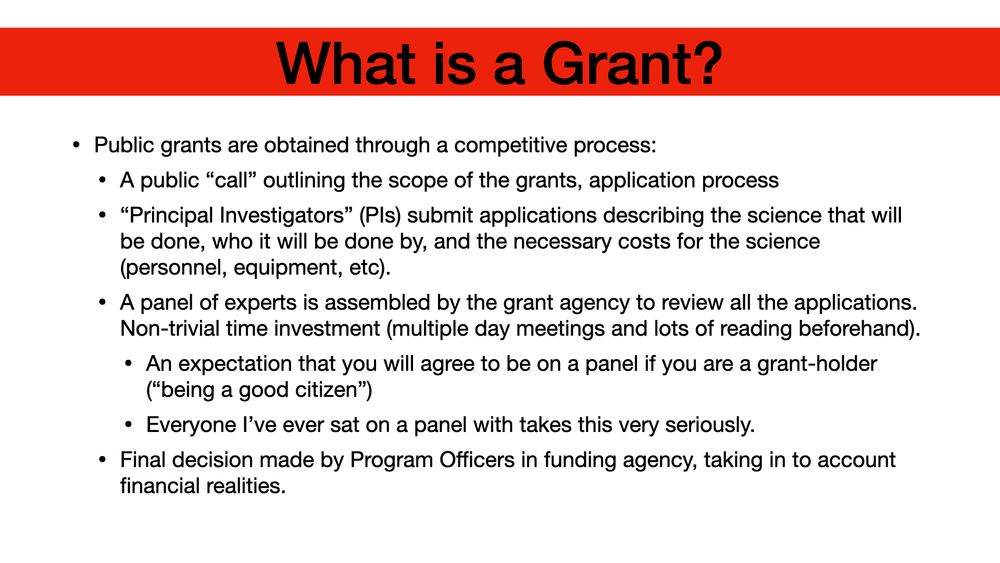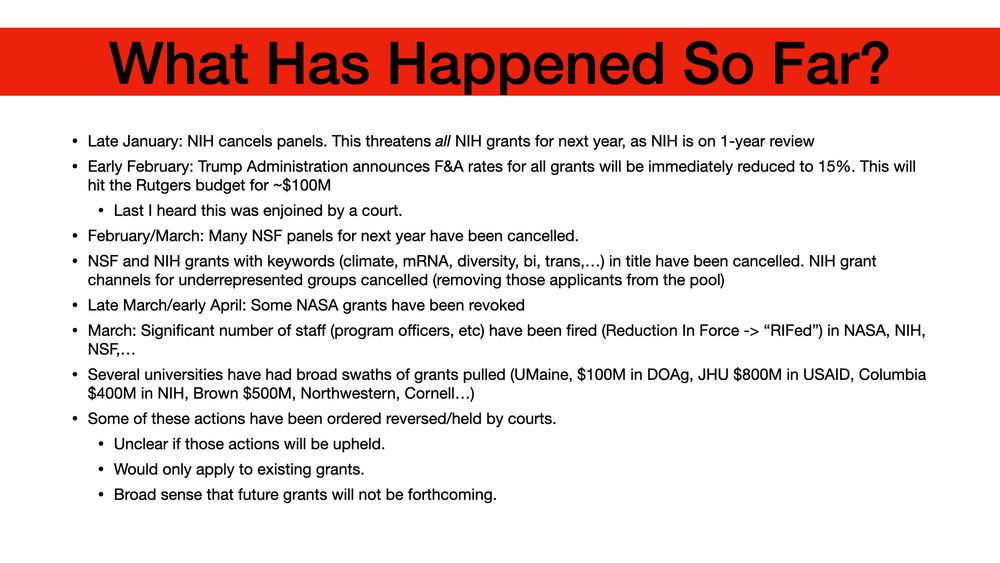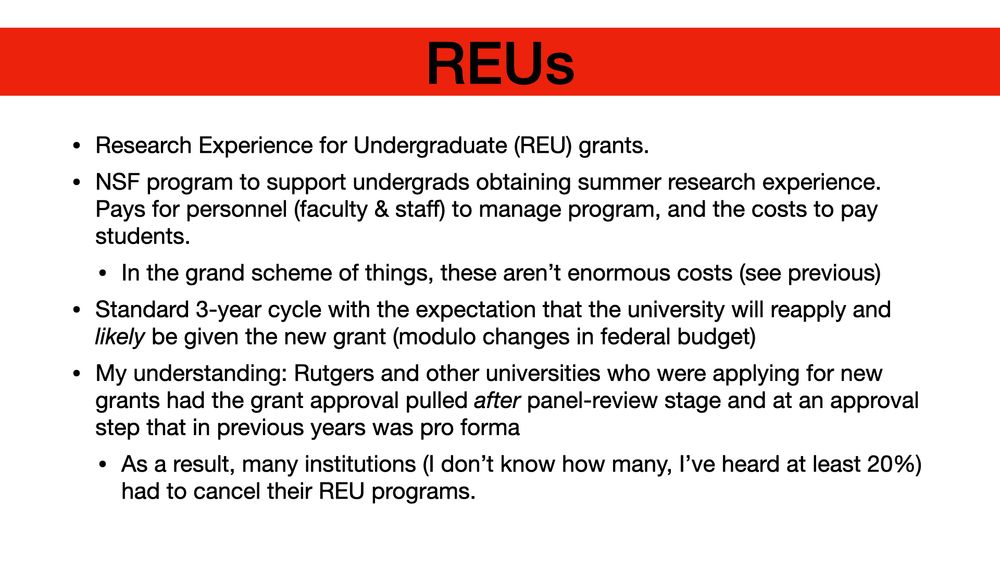Note Bene: I know how DOE and NSF grants for theoretical physics work, because that's my system. I know the ins and outs of other systems far less well.
Replies
Every person I've ever worked with treats the money we are entrusted with incredibly seriously. The grant process is tedious, lengthly, and relies on massive amounts of volunteered time as well as expert grant officers in the funding agencies.
Being a PI is a continual cycle of applying for grants, explaining what you did for the grant, and trying to get a new grant. Is this the most efficient system? Maybe not, but it is the system we work in.
Theory grants are on the smaller end, and lots of it is taken up by fringe (health care and benefits) and overhead (goes to university operations). Is this the only way we could build a system to do science? No, but if you take this away without a new system in place, that's a problem.
Undergrad specific impacts: Research Experience for Undergrads. This is how we get people into research. There are fewer opportunities now.RE






